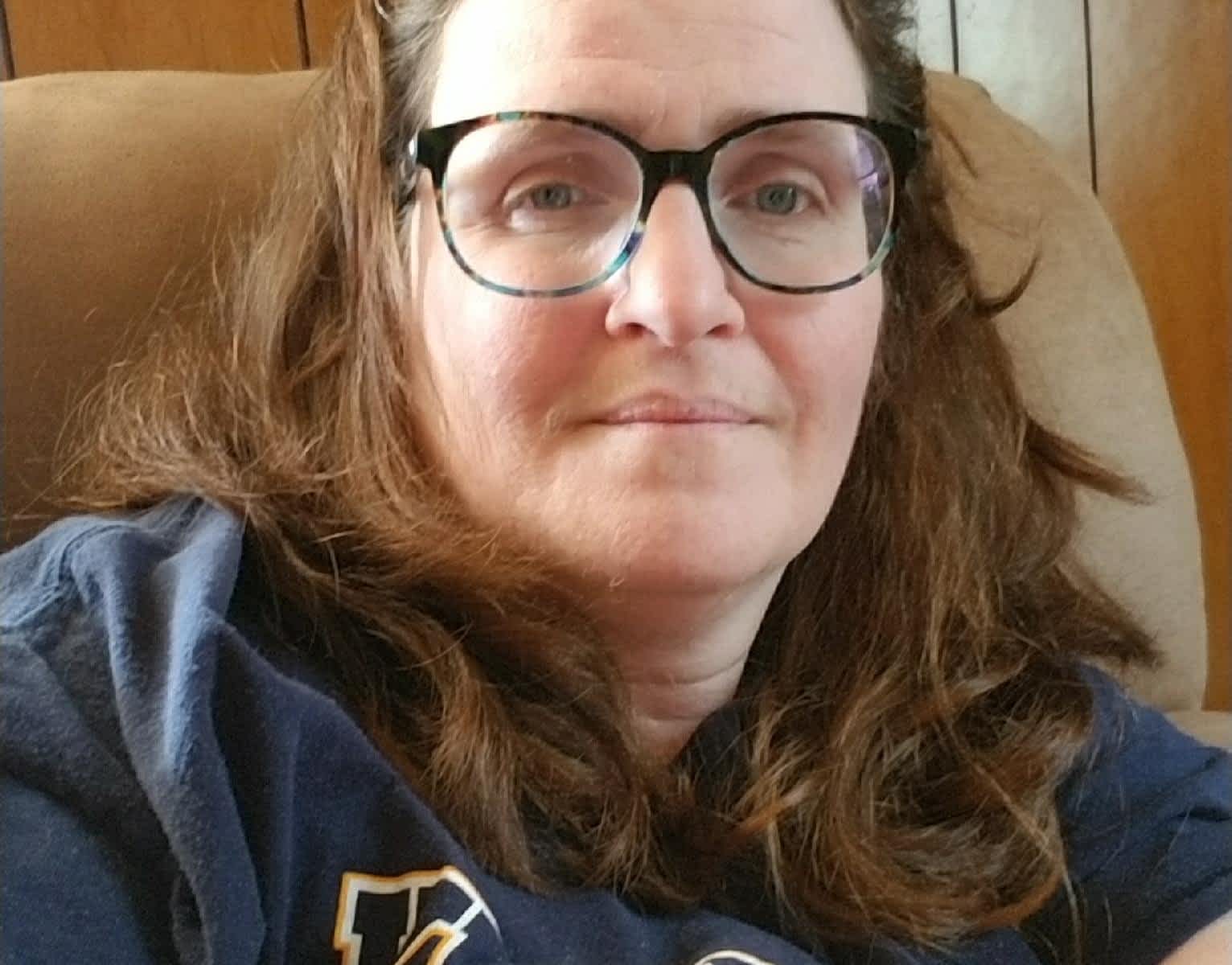During open enrollment, we're profiling people who use "Obamacare." We're hoping to put a face to the controversial law and provide an up-close look at its impact, whether harmful or helpful. We'll feature someone new each week until federal open enrollment ends on Dec. 15, so check back for more stories. If you're looking for help signing up for Obamacare 2018, visit our HealthGenius section.
Kathy Schermerhorn signed up for the former President Barack Obama's health care law the day the federal marketplaces launched in 2013.
"It's been affordable," she said. "I have good coverage and I like it."
The 51-year-old works as an optician in a small office outside Pittsburgh. She didn't have health insurance before "Obamacare." She couldn't afford it and her employer doesn't offer it.
Schermerhorn, a single mother with a kid in college, was diagnosed with epilepsy in 2015. The medicine costs almost half of her salary without insurance.
"If I get off the medication, I have seizures," she said. "I can't drive. I can't work. I can't function normally."
'I'm going to lose everything I own'
For 2017, she got a health plan offered by UPMC, a local hospital. Her seizure medication costs her $2 a month under the plan. Her monthly premium is $56 after receiving a $200 subsidy, which is about half as much as she paid in 2016.
Schermerhorn followed the health care debate in Washington and the repeated attempts to repeal the health care law, formally known as the Affordable Care Act, with dread.
"I'm a little afraid it's going to jack up the prices to something I can't afford," Schermerhorn told me in October.
She had new reason to worry. She had been diagnosed a month earlier with breast cancer. Her health coverage meant she only paid $20 for lab tests and mammograms, but she feared her costs would explode if the health care law disappeared.
Schermerhorn said she has a decent credit rating. She pays the rent and her bills. She owns a car and has a job.
"I don't have much, but I will lose these things that I own because I'm sick," she said. "If I can't keep my Obamacare and I can't keep my subsidies I'm going to lose everything that I own."
She met with her oncologist the day before she spoke to me. She learned she'd need surgery, followed by six months of chemotherapy, followed by five years of hormone therapy. The treatments would cost her thousands of dollars a month without insurance.
Schermerhorn believes health care is a right. She wonders why prisoners get guaranteed health care and the rest of us don't.
I looked up why: The Supreme Court ruled that all prisoners are entitled to adequate medical care in a 1976 ruling. The decision said denying prisoners medical care violated the Eighth Amendment, which prohibits cruel and unusual punishment.
"Why is it not a right for people who aren't in prison who ... want to go to work and do things?" she asked.
Schermerhorn laid out her odds depending on the fate of the health care law, formally known as the Affordable Care Act.
"With health care, I have a 90% chance of surviving five years," she said. "Without health care, my chances of surviving six months is not good. If they take it away from me in January I'm as good as dead. I don't know what else to do."
'I don't know what's going to happen next year'
We didn't speak for another few weeks after that. I didn't plan to speak to her until she enrolled in a plan, but I reached out to Schermerhorn after President Donald Trump announced he would stop paying insurers for cost-sharing reductions (CSR), a discount to help low-income people with copays and deductibles. She was worried it meant the discounts would end and she wouldn't be able to afford a plan, just as her treatments were starting.
"I know I make too much for Medicaid right now and I need a permanent plan," she said.
Many states — Pennsylvania among them — adjusted to the cuts by asking health insurers to load their extra costs on silver-level plans. Many people receive tax credits to help pay for their premiums, and the value of these credits rises with the cost of silver-level plans. Because of this, many people are receiving a bigger subsidy for 2018 despite the CSR cuts.
Schermerhorn turned out to be one of them. The next time I spoke to her was in November. She was much more serene, though she had just come out of surgery for her breast cancer days earlier.
"I feel better than I have in months," she said.
Enrollment for 2018 plans had started while she was recovering at home and she managed to get the same plan she has now. The premium shot up to $533 a month, but so did her subsidy. While she pays $53 a month this year, her premium will be $23.86 in 2018.
"I was afraid I was going to get priced out," she said. "I'm glad that did not happen. I don't know what's going to happen ."
Schermerhorn still fears what will happen if she loses her subsidies. She can't afford to pay $533 a month. She has radiation and chemotherapy to go through, but she feels less pain than she did before her lumpectomy.
"Hopefully it will stay this way," she said of the health care law. "They have to keep fighting for it because if they take it away, people like me are going to die."
Image: Kathy Schermerhorn

